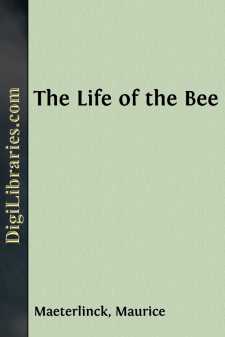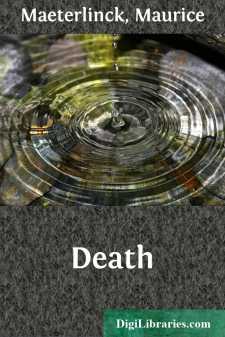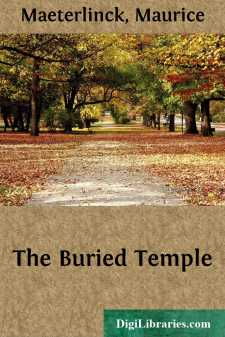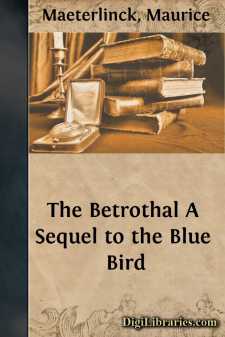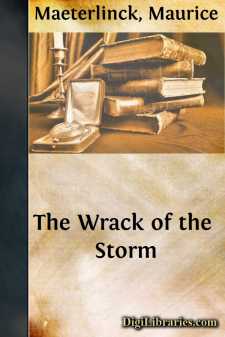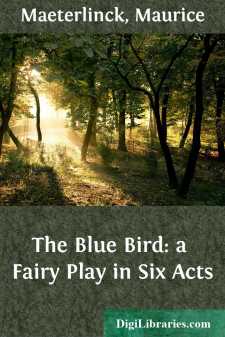Categories
- Antiques & Collectibles 13
- Architecture 36
- Art 48
- Bibles 22
- Biography & Autobiography 813
- Body, Mind & Spirit 142
- Business & Economics 28
- Children's Books 17
- Children's Fiction 14
- Computers 4
- Cooking 94
- Crafts & Hobbies 4
- Drama 346
- Education 46
- Family & Relationships 57
- Fiction 11829
- Games 19
- Gardening 17
- Health & Fitness 34
- History 1377
- House & Home 1
- Humor 147
- Juvenile Fiction 1873
- Juvenile Nonfiction 202
- Language Arts & Disciplines 88
- Law 16
- Literary Collections 686
- Literary Criticism 179
- Mathematics 13
- Medical 41
- Music 40
- Nature 179
- Non-Classifiable 1768
- Performing Arts 7
- Periodicals 1453
- Philosophy 64
- Photography 2
- Poetry 896
- Political Science 203
- Psychology 42
- Reference 154
- Religion 513
- Science 126
- Self-Help 84
- Social Science 81
- Sports & Recreation 34
- Study Aids 3
- Technology & Engineering 59
- Transportation 23
- Travel 463
- True Crime 29
Maurice Maeterlinck
Maurice Maeterlinck (1862–1949) was a Belgian playwright, poet, and essayist, notable for his contributions to Symbolist theatre. He is best known for his play "The Blue Bird," which explores themes of happiness and the quest for it. In recognition of his literary achievements, Maeterlinck was awarded the Nobel Prize in Literature in 1911.
Author's Books:
Sort by:
LET us now, in order to form a clearer conception of the bees' intellectual power, proceed to consider their methods of inter-communication. There can be no doubting that they understand each other; and indeed it were surely impossible for a republic so considerable, wherein the labours are so varied and so marvellously combined, to subsist amid the silence and spiritual isolation of so many...
more...
DEATH OUR IDEA OF DEATH It has been well said: “Death and death alone is what we must consult about life; and not some vague future or survival, in which we shall not be present. It is our own end; and everything happens in the interval between death and now. Do not talk to me of those imaginary prolongations which wield over us the childish spell of number; do not talk to me—to me who am to die...
more...
THE MYSTERY OF JUSTICE 1 I speak, for those who do not believe in the existence of a unique, all-powerful, infallible Judge, for ever intent on our thoughts, our feelings and actions, maintaining justice in this world and completing it in the next. And if there be no Judge, what justice is there? None other than that which men have made for themselves by their laws and tribunals, as also in the social...
more...
ACT I The Wood-cutter's Cottage The cottage-scene in The Blue Bird: the interior of a wood-cutter's cabin, simple and rustic in appearance, but in no way poverty-stricken. A recessed fireplace containing the dying embers of a wood-fire. Kitchen-utensils, a cupboard, a bread-pan, a grandfather's clock, a spinning-wheel, a water-tap, etc. A dog and a cat asleep. A large blue-and-white...
more...
I AFTER THE VICTORY 1 At these moments of tragedy, none should be allowed to speak who cannot shoulder a rifle, for the written word seems so monstrously useless, so overwhelmingly trivial, in front of this mighty drama which shall for a long time, it may be for ever, free mankind from the scourge of war: the one scourge among all that cannot be excused, that cannot be explained, since alone among all...
more...
ACT I _The Wood-cutter's Cottage The stage represents the interior of a wood-cutter's cottage, simple and rustic in appearance, but in no way poverty-stricken. A recessed fireplace containing the dying embers of a wood-fire. Kitchen utensils, a cupboard, a bread-pan, a grandfather's clock, a spinning-wheel, a water-tap, etc. On a table, a lighted lamp. At the foot of the cupboard, on...
more...
INTRODUCTION This essay on Wisdom and Destiny was to have been a thing of some twenty pages, the work of a fortnight; but the idea took root, others flocked to it, and the volume has occupied M. Maeterlinck continuously for more than two years. It has much essential kinship with the "Treasure of the Humble," though it differs therefrom in treatment; for whereas the earlier work might perhaps be...
more...


